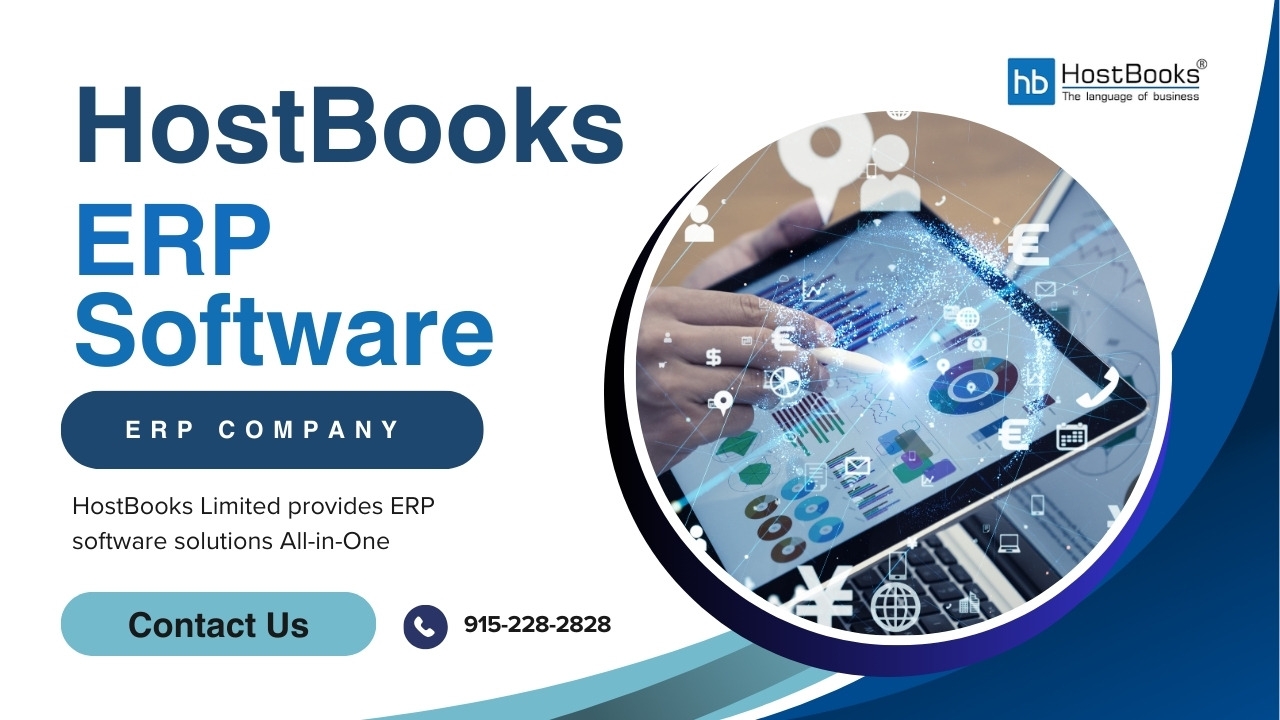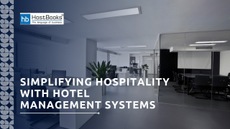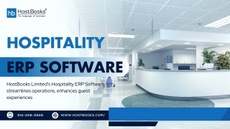In today’s competitive business environment, small businesses face numerous challenges, from managing inventory and finances to keeping up with customer demands. Enterprise Resource Planning (ERP) software, once thought to be only for large corporations, is now a vital tool for small businesses. With a well-designed ERP software system, small businesses can streamline their processes, reduce operational costs, and scale for growth. This blog explores how ERP software benefits small businesses and why it's becoming essential for long-term success.
What is ERP Software?
ERP software is a comprehensive tool that integrates different aspects of a business—such as inventory management, finance, human resources, and customer relations—into a single platform. This integration provides a real-time view of all critical business functions, enabling small businesses to make informed decisions quickly and accurately. Unlike standalone systems, ERP software creates a centralized database where data from all departments is accessible, enhancing communication and efficiency.
Key Benefits of ERP Software for Small Businesses
1. Streamlined Operations
Small businesses often face resource constraints and limited manpower. ERP software automates repetitive tasks, reduces the need for manual data entry, and allows employees to focus on more strategic activities. For example, automated inventory management can alert businesses to restock levels, ensuring they never run out of essential items. Streamlining these tasks boosts productivity and helps small businesses run smoothly.
2. Improved Financial Management
Managing finances effectively is crucial for any small business. ERP software includes accounting features that help with budgeting, expense tracking, payroll, and financial reporting. By automating these processes, ERP systems reduce errors and provide accurate financial data, enabling business owners to make better financial decisions and maintain profitability.
3. Better Customer Relationship Management (CRM)
Customer satisfaction is critical for small businesses looking to build a loyal customer base. ERP software typically includes CRM tools that allow businesses to track customer interactions, sales history, and preferences. With a centralized view of customer data, small businesses can personalize their marketing efforts, improve customer service, and build stronger relationships.
4. Enhanced Decision-Making with Real-Time Data
One of the biggest advantages of ERP software is access to real-time data. This visibility allows business owners to monitor key metrics, identify trends, and make data-driven decisions. Real-time data can help small businesses respond more quickly to market changes, optimize their operations, and identify opportunities for growth.
5. Scalability for Future Growth
ERP software is designed to grow with the business. As small businesses expand, their processes and data requirements evolve. ERP software offers the flexibility to add new modules, users, or functions as needed, ensuring that the system remains relevant and supportive of growth. This scalability makes ERP a smart long-term investment for small businesses.
Industry-Specific ERP Solutions for Small Businesses
Different industries have unique requirements, and industry-specific ERP software offers features tailored to meet those needs. Here’s how ERP can benefit various small business sectors:
- ERP Software for Retail: Manages inventory, processes transactions, and tracks sales trends to optimize stock and enhance customer satisfaction.
- Manufacturing ERP Software: Handles production planning, quality control, and supply chain management to streamline manufacturing processes.
- Textile ERP Software: For textile businesses, ERP software manages inventory, quality control, and production scheduling to ensure efficiency in manufacturing and distribution.
- Logistics ERP Software: Helps logistics firms manage transportation, track shipments, and optimize delivery routes, improving efficiency and reducing costs.
By choosing an industry-specific ERP solution, small businesses can gain features and functionality specifically designed for their operational needs.
Why Cloud-Based ERP is Ideal for Small Businesses
For small businesses, cloud-based ERP software is often a practical choice. Cloud-based ERP offers several advantages:
- Lower Initial Investment: Cloud ERP typically has lower upfront costs, as there’s no need to purchase servers or handle IT infrastructure. Small businesses pay a monthly or annual subscription, making ERP more affordable.
- Accessibility: Cloud-based ERP can be accessed from anywhere with an internet connection, allowing business owners to monitor their operations remotely and ensure employees have up-to-date information.
- Automatic Updates: Cloud ERP providers regularly update the system with new features and security patches, ensuring that businesses always have access to the latest technology.
- Data Security: Reputable cloud ERP providers offer advanced security features, protecting sensitive business data from threats.
Cloud-based ERP offers small businesses flexibility, security, and affordability, making it an ideal solution for those looking to implement an ERP system without large capital expenses.
Steps to Implementing ERP Software in a Small Business
Implementing ERP software in a small business requires careful planning and preparation. Here are the basic steps for a successful ERP implementation:
- Define Your Needs: Identify the specific functions you need from your ERP system, such as accounting, CRM, or inventory management.
- Choose the Right ERP Solution: Select an ERP system that meets your business’s specific requirements. Look for industry-specific features if applicable.
- Plan the Implementation: Work with your ERP provider to develop a timeline and budget for the implementation process.
- Train Your Team: Proper training ensures employees can use the system effectively.
- Monitor and Optimize: After implementation, monitor the system’s performance and make adjustments as needed to maximize benefits.
ERP Software with HostBooks Limited: A Perfect Fit for Small Businesses
At HostBooks Limited, we offer ERP software solutions designed specifically for small businesses. Our ERP solutions are affordable, scalable, and customizable, helping small businesses streamline operations, improve customer service, and drive growth. With industry-specific modules for sectors like manufacturing, retail, and logistics, our ERP systems cater to the unique needs of small businesses, ensuring they get maximum value from their investment.
Conclusion
As small businesses look to stay competitive and grow, implementing ERP software has become a necessity. From streamlining operations to improving financial management and customer service, ERP systems offer small businesses the tools they need to succeed. With a flexible, scalable ERP solution, small businesses can operate more efficiently, make informed decisions, and prepare for future growth.
If you’re a small business ready to take your operations to the next level, consider ERP software from HostBooks Limited. Our solutions are designed to meet the needs of growing businesses, providing the tools and support you need for success.




